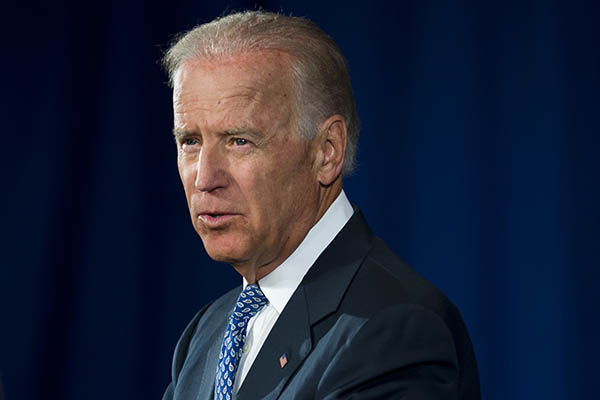
File photo. Saul Loeb—AFP
U.S. president defends decision to withdraw all troops on expedited timetable, stressing American soldiers can’t fight war for Afghans
U.S. President Joe Biden, in a press statement on Monday, laid the blame for the Taliban’s rapid takeover of Afghanistan on the country’s elected government, stressing that American soldiers cannot defend a nation whose leaders “gave up and fled.”
In his first official statement following the collapse of the Western-backed government led by Ashraf Ghani, he also criticized the U.S.-trained Afghan army’s unwillingness to fight the insurgents. “We gave them every tool they could need,” he said, noting the U.S. had paid the salaries of the Afghan National Army in addition to providing training and armament. “We provided close air support. What we could not provide is the will to fight for their future,” he said, reiterating that he could no longer justify asking U.S. soldiers to risk their lives in Afghanistan after 20 years of operations.
“Afghanistan political leaders gave up and fled the country,” he said. “The Afghan military collapsed, sometimes without trying to fight,” he said, adding U.S. soldiers should not fight a war for Afghanistan that Afghan forces were not willing to fight themselves.
“When I hosted President Ghani and Chairman Abdullah at the White House in June, and again when I spoke by phone to Ghani in July, we had very frank conversations. We talked about how Afghanistan should prepare to fight their civil wars after the U.S. military departed,” he said. “We talked extensively about the need for Afghan leaders to unite politically. They failed to do any of that. I also urged them to engage in diplomacy, to seek a political settlement with the Taliban. This advice was flatly refused. Mr Ghani insisted the Afghan forces would fight, but obviously he was wrong,” he added.
“We spent over a trillion dollars. We trained and equipped an Afghan military force of some 300,000 strong. Incredibly well equipped. A force larger in size than the militaries of many of our NATO allies,” he stressed. He pointed out that if Afghanistan were unable to mount any real resistance to the Taliban after 20 years, additional time would make no difference, whether it was one year, 5 years or even 20 more years.
“Our mission in Afghanistan was never supposed to have been nation-building,” he said, noting that it had been about eradicating Al Qaeda,
Rejecting criticism of his decision to expedite the withdrawal of troops from Afghanistan, Biden said he had no regrets. “I stand squarely behind my decision,” he said. “After 20 years I’ve learned the hard way that there was never a good time to withdraw U.S. forces. That’s why we’re still there.”
Acknowledging that he found some of the scenes of chaos in Kabul “gut wrenching”—panicked Afghans have been seen trying to cling onto taxiing aircraft—and claimed he had not started moving out evacuees sooner because then-president Ghani did not want a mass exodus to stoke panic.
On Monday night, Biden authorized up to $500 million from an emergency fund to meet “unexpected urgent” refugee needs stemming from the situation in Afghanistan, including for Afghan special immigration visa applicants, said the White House.
“The truth is: This did unfold more quickly than we anticipated,” he said, going on to blame the deal inked between former president Donald Trump’s administration and the Taliban for leaving the insurgents in the “strongest position militarily since 2001.”
Biden also said his decision was a result of the commitment he made to American troops that he was not going to ask them to continue to risk their lives for a war that should have ended long ago. “Our leaders did that in Vietnam when I got here as young man. I will not do it in Afghanistan,” he said. “I know my decision will be criticized but I would rather take all that criticism than pass this decision on to another president,” he added.
The U.S. president warned Taliban leaders they would face “devastating force” should they interfere with the U.S. pullout, which is ongoing. He also stressed that the U.S. would, going forward, place adherence to human rights at the forefront of its foreign policy, rather than on the sidelines.
